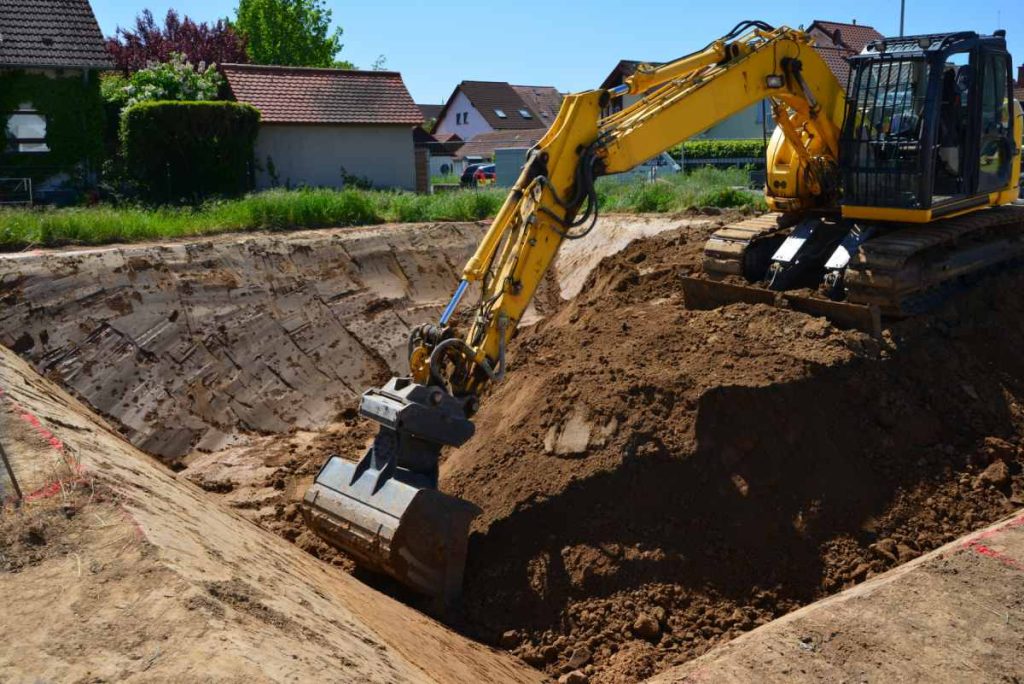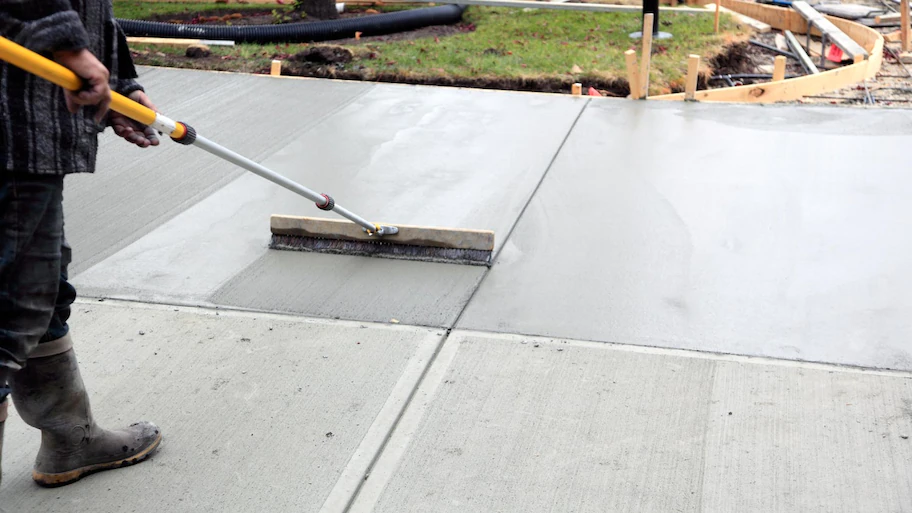A concrete driveway is a long-term investment, and one of the most important factors that determine its durability is the thickness of the concrete. The right thickness ensures that your driveway can handle the weight of vehicles, resist cracking, and withstand Montgomery’s weather conditions. But how thick should your concrete driveway be? In this blog, we’ll explore the key factors that affect concrete thickness and help you choose the best option for your Montgomery home.
1. Standard Thickness for Residential Driveways
For most residential driveways, a concrete thickness of 4 inches is considered standard. This thickness is typically sufficient for handling the weight of regular vehicles such as cars, SUVs, and light trucks. A 4-inch slab provides the necessary support and durability for everyday use, ensuring that your driveway remains crack-free and long-lasting.
2. Consider Heavy Loads

If your driveway will be exposed to heavier vehicles, such as RVs, boats, or large trucks, you may need to increase the thickness to 5-6 inches. This extra thickness provides additional strength and load-bearing capacity, helping to prevent cracking or sinking under heavy loads. In Montgomery, where homeowners may store boats or recreational vehicles, opting for a thicker slab can extend the life of your driveway and reduce the need for repairs.
3. Subgrade Preparation

The condition of the soil beneath your driveway (called the subgrade) plays a crucial role in determining the appropriate concrete thickness. A well-prepared subgrade helps distribute the weight evenly and reduces the risk of settling or cracking. If the subgrade is soft or unstable, additional thickness may be required to compensate for the weaker foundation. In some cases, compacting the soil and adding a layer of gravel or crushed stone beneath the concrete can improve stability.
4. Reinforcement Options
While concrete is strong, adding reinforcement can further enhance its durability. Reinforcing your concrete driveway with steel rebar or wire mesh helps distribute the weight of vehicles more evenly and reduces the likelihood of cracking. This is especially important for driveways that will experience frequent heavy traffic or harsh weather conditions. Reinforcement allows for a thinner slab without sacrificing strength, making it a valuable addition for any driveway.
5. Climate Considerations

Montgomery’s weather, with its hot summers and occasional heavy rain, can impact the performance of your driveway. Concrete expands and contracts with temperature changes, and if the slab is too thin, it may crack over time. Choosing the right thickness helps accommodate these temperature fluctuations and ensures that your driveway remains durable, even in extreme conditions.
6. Long-Term Durability
Investing in the right concrete thickness from the start can save your money on repairs and maintenance down the line. A thicker slab may have a higher upfront cost, but it provides long-term durability and minimizes the risk of cracking, sinking, or other structural issues. For homeowners who want a driveway that lasts for decades, choosing the right thickness is essential for long-term performance.
Conclusion
Choosing the right concrete thickness for your driveway in Montgomery depends on factors such as vehicle weight, subgrade preparation, and climate conditions. While 4 inches is sufficient for most residential driveways, increasing the thickness to 5-6 inches may be necessary for heavier loads or poor soil conditions. Reinforcement options like steel rebar can also help ensure your driveway remains durable and crack-free for years to come.
If you’re planning to install or upgrade your driveway, you might also find it helpful to read our guide on Concrete vs. Asphalt: Which Is Better for Driveways in Montgomery, Alabama? for a complete comparison of materials.

